Physical Address
304 North Cardinal St.
Dorchester Center, MA 02124
Physical Address
304 North Cardinal St.
Dorchester Center, MA 02124

The Best and Latest in Conservative Thought
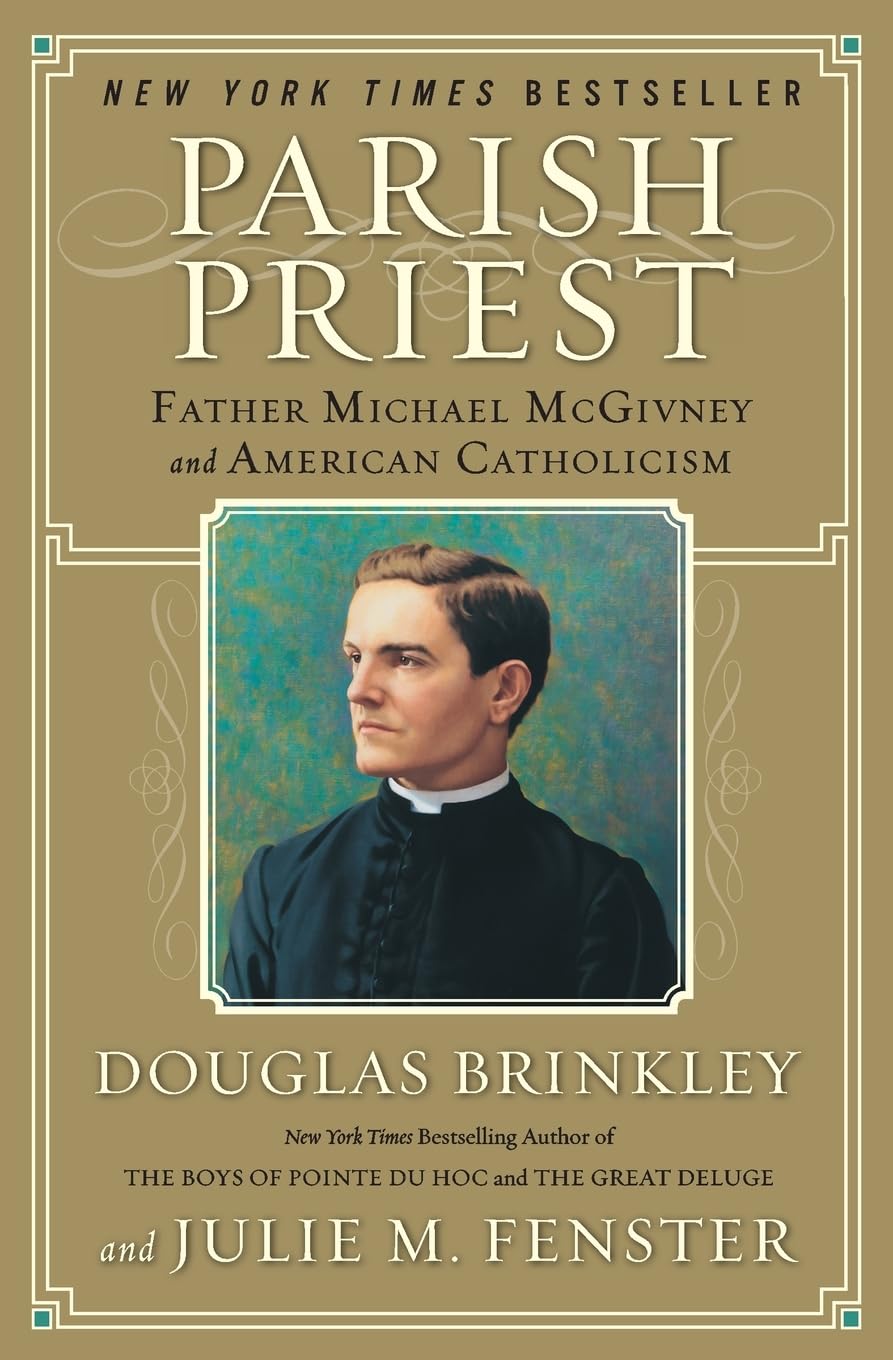
The Knights of Columbus, founded in 1882, is a global Catholic fraternal organization dedicated to charitable work, community service, and the support of the Catholic Church. With its headquarters in New Haven, Connecticut, the organization boasts nearly two million members worldwide, making it one of the largest and most active Catholic organizations in the world.
The Knights of Columbus was established by Father Michael J. McGivney, a parish priest from New Haven, Connecticut. Father McGivney, the son of Irish immigrants, recognized the profound challenges faced by Catholic families during the late 19th century. Immigrant families often dealt with poverty, social prejudice, and the absence of social safety nets. Widows and orphans were particularly vulnerable, struggling with financial instability following the loss of the family breadwinner.
Father McGivney envisioned a fraternal society that would provide mutual aid and support to these families. His goal was to create an organization that would offer financial assistance, promote social cohesion, and reinforce the values of faith and community. In March 1882, his vision came to fruition with the founding of the Knights of Columbus, named in honor of Christopher Columbus, symbolizing the Catholic contribution to the American story.
The mission of the Knights of Columbus revolves around four core principles: Charity, Unity, Fraternity, and Patriotism. These principles guide the organization’s extensive range of activities, which aim to uplift individuals and communities while promoting the teachings of the Catholic Church.
Charity: Charity is the foremost principle of the Knights of Columbus. The organization raises and donates millions of dollars annually to various causes, including disaster relief, education, and healthcare. Their charitable initiatives also extend to providing financial assistance to families in need and supporting food banks, homeless shelters, and other community services.
Unity: The Knights of Columbus fosters a spirit of unity among its members and within the broader community. This principle is reflected in their collaborative efforts with parishes, schools, and other organizations to support communal projects and social events.
Fraternity: The sense of brotherhood among members is a cornerstone of the Knights of Columbus. This fraternal bond is evident in their support networks, which provide emotional and financial assistance to members and their families during times of need. The organization also promotes leadership development and personal growth through various programs and initiatives.
Patriotism: Patriotism is expressed through the Knights’ commitment to promoting civic responsibility and honoring those who serve their country. The organization actively supports veterans, participates in patriotic observances, and advocates for policies that uphold the values of faith and family.
The Knights of Columbus has expanded its reach beyond the United States, with councils established in numerous countries around the world. This global presence allows the organization to address diverse needs and challenges, from supporting persecuted Christians in the Middle East to funding education and healthcare initiatives in developing nations.
One of the Knights’ notable global contributions is their work in disaster relief. The organization mobilizes resources and volunteers to provide immediate and long-term assistance in the aftermath of natural disasters. Additionally, the Knights of Columbus has a strong commitment to promoting the sanctity of life, supporting pro-life initiatives, and advocating for the protection of religious freedoms worldwide.
Through its extensive charitable efforts, community engagement, and unwavering support for the Catholic Church, the Knights of Columbus continues to make a significant impact on the world. The organization’s dedication to serving others, upholding moral values, and fostering a spirit of unity and fraternity exemplifies its commitment to making the world a better place for all.
In essence, the Knights of Columbus stands as a beacon of hope and compassion, inspired by the vision of its founder, Father Michael McGivney, and driven by the enduring principles of charity, unity, fraternity, and patriotism.
Parish Priest: Father Michael McGivney and American Catholicism
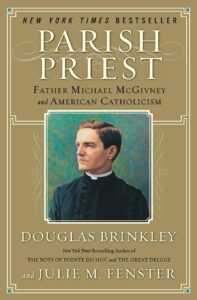
Amidst an era of discrimination and poverty for Catholics in America, Father Michael McGivney (1852-1890) began a legacy of hope that endures to this day. In 1882, moved by his compassion for these struggling individuals, this dynamic yet tenderhearted man—the son of Irish immigrants—founded the Knights of Columbus, an organization that has rescued countless families from destitution.
At his core, Father McGivney epitomized the American parish priest: adored by children, trusted by adults, and revered as a “positive saint” by the elderly in his New Haven, CT, parish. His life and works continue to be celebrated today as a testament to his enduring impact and holiness.
Blessed Father Michael McGivney: Life story and nine days novena, litany, devotions and prayers to founder of knight of Columbus
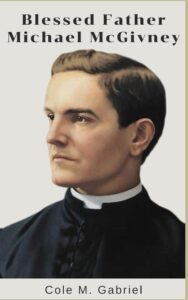
“Blessed Father Michael McGivney: A Beacon of Hope in Troubled Times” is a compelling biography that chronicles the remarkable life and enduring legacy of a humble parish priest who became a symbol of hope and inspiration for millions around the world. Authored by [insert author’s name], this meticulously researched and deeply moving narrative traces the extraordinary journey of Father Michael McGivney, from his beginnings as the son of Irish immigrants to his beatification by the Catholic Church.
Set against the backdrop of 19th-century America, a time marked by poverty, prejudice, and social upheaval, Father McGivney’s story is a powerful testament to the impact of faith, compassion, and unwavering dedication to service. As a young priest in the industrial town of New Haven, Connecticut, he witnessed the severe hardships faced by immigrant families and recognized the urgent need for community support.
Driven by a profound sense of duty and guided by his deep faith, Father McGivney founded the Knights of Columbus, a fraternal organization aimed at providing financial assistance to widows and orphans, supporting the education of young Catholics, and promoting unity and solidarity among men of faith. His tireless efforts transformed countless lives, offering hope, dignity, and a sense of belonging to many who were struggling.
Through vivid storytelling and rich historical detail, “Blessed Father Michael McGivney” invites readers to explore the heart and soul of a man whose leadership and vision revitalized the Catholic community and left an indelible mark on society. This gripping biography is not just a historical account but a source of solace, guidance, and renewal for anyone seeking inspiration in troubled times.
Discover the extraordinary life of Blessed Father Michael McGivney—a true testament to the transformative power of faith, compassion, and the human spirit. Order your copy today and embark on a journey of enlightenment, inspiration, and hope.
Patriotism and Fraternalism in the Knights of Columbus: A History of the Fourth Degree
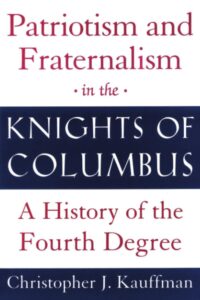
This comprehensive account delves into how the Knights of Columbus’s “Fourth Degree” vigorously countered the anti-Catholic sentiment of the early 20th century. In this study, Christopher Kauffman chronicles the widespread attacks on Catholic loyalty to the nation and the robust expression of Catholic patriotism that emerged in response.
During a time when organizations promoted historical narratives excluding Catholics and immigrants, often depicting the Knights of Columbus as agents of “Vatican Imperialism” in the United States, the Fourth Degree, Patriotism, was established to affirm a distinctly Catholic historical perspective. Anti-Catholic groups championed symbols of “republicanism,” such as “the little red school house,” which they believed were essential for fostering true citizenship, in contrast to the “Vatican-dominated” parochial schools accused of conspiring against national institutions and the democratic spirit.
Kauffman’s study reveals how the Fourth Degree worked to combat these prejudices and assert the rightful place of Catholics within the American patriotic tradition.
The Knights of Columbus: An Illustrated History
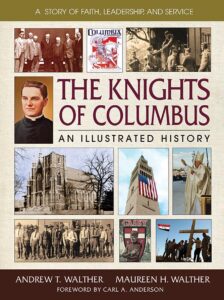
This book tells a uniquely American story of faith in action. From its founding in 1882 by a handful of men from a small, predominantly Irish Catholic parish in New Haven, Connecticut, the Knights of Columbus has grown into an international brotherhood of nearly 2 million members across North America and around the globe. Established by Father Michael J. McGivney with the men of his parish, this new fraternal organization was dedicated to the principles of charity and unity, supporting the faith and financial stability of its members and their families. From its inception, the Knights of Columbus demonstrated that one could be both a devout Catholic and a loyal American, standing firm against the prevalent religious discrimination of the time. It soon evolved into an organization whose members supported each other while making significant contributions to their parishes, communities, countries, and the world.
Lavishly illustrated with hundreds of beautiful photos, The Knights of Columbus: An Illustrated History chronicles the story of this extraordinary organization and the myriad ways it has helped individuals and shaped American and world history at pivotal moments. Readers will discover the Knights’ decisive contributions during times of disaster, from the San Francisco earthquake and fire of 1906 to recent events like Hurricanes Katrina, Sandy, and Harvey. The book details the Knights’ public resistance to the Ku Klux Klan and its message of hate in the 1920s, showcasing the organization’s steadfast stand against bigotry. It also highlights the Knights’ dedication to education, including efforts in the 1920s to correct historical inaccuracies in national textbooks and narratives, ensuring the stories of America’s Catholics, African Americans, Jews, and others were told accurately.
Additionally, the book explores the Knights’ active role in the global fight for religious freedom, from their efforts to end the Mexican government’s persecution of Catholics in the 1920s to their current work to end the persecution of religious minorities in the Middle East and support for ISIS genocide survivors. The Knights’ support for America’s troops and veterans, from two world wars to the present day, is also prominently featured.
In nearly a century and a half since its humble beginnings, the Knights of Columbus has touched countless lives—Catholic and non-Catholic alike—across the world. Through war and peace, the organization has remained a consistent example of faith in action, offering help and hope, faith and freedom to neighbors both near and far.